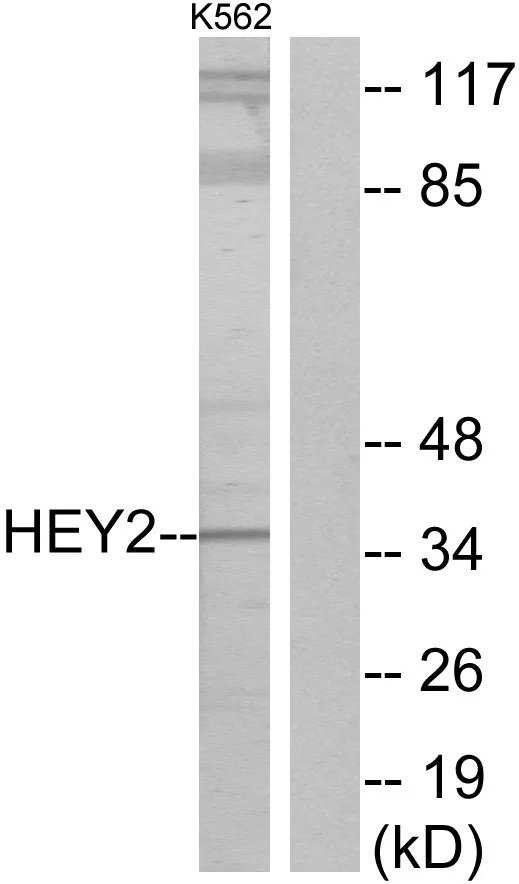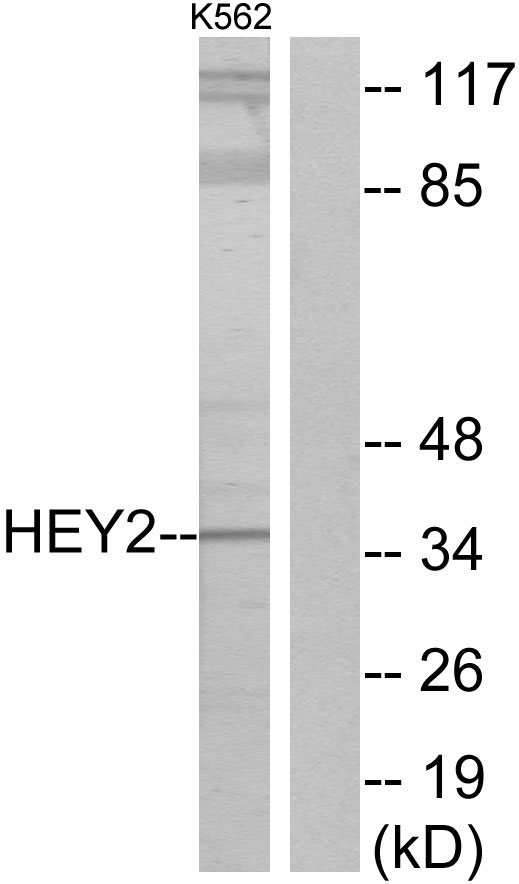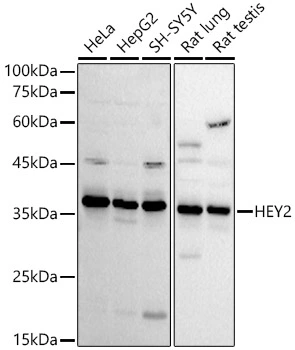
WB analysis of K562 cell lysates using GTX87082 HEY2 antibody. The lane on the right is blocked with the synthesized peptide.
HEY2 antibody
GTX87082
ApplicationsWestern Blot
Product group Antibodies
ReactivityHuman
TargetHEY2
Overview
- SupplierGeneTex
- Product NameHEY2 antibody
- Delivery Days Customer9
- Application Supplier NoteWB: 1:500~1:1000. *Optimal dilutions/concentrations should be determined by the researcher.Not tested in other applications.
- ApplicationsWestern Blot
- CertificationResearch Use Only
- ClonalityPolyclonal
- ConjugateUnconjugated
- Gene ID23493
- Target nameHEY2
- Target descriptionhes related family bHLH transcription factor with YRPW motif 2
- Target synonymsCHF1, GRIDLOCK, GRL, HERP1, HESR2, HRT2, bHLHb32, hairy/enhancer-of-split related with YRPW motif protein 2, HES-related repressor protein 1, HES-related repressor protein 2, HESR-2, HRT-2, cardiovascular basic helix-loop-helix factor 1, cardiovascular helix-loop-helix factor 1, class B basic helix-loop-helix protein 32, hCHF1, hHRT2, hairy and enhancer of split-related protein 2, hairy-related transcription factor 2, hairy/enhancer-of-split related with YRPW motif 2, protein gridlock homolog
- HostRabbit
- IsotypeIgG
- Protein IDQ9UBP5
- Protein NameHairy/enhancer-of-split related with YRPW motif protein 2
- Scientific DescriptionThis gene encodes a member of the hairy and enhancer of split-related (HESR) family of basic helix-loop-helix (bHLH)-type transcription factors. The encoded protein forms homo- or hetero-dimers that localize to the nucleus and interact with a histone deacetylase complex to repress transcription. Expression of this gene is induced by the Notch signal transduction pathway. Two similar and redundant genes in mouse are required for embryonic cardiovascular development, and are also implicated in neurogenesis and somitogenesis. Alternatively spliced transcript variants have been found, but their biological validity has not been determined. [provided by RefSeq, Jul 2008]
- ReactivityHuman
- Storage Instruction-20°C or -80°C,2°C to 8°C
- UNSPSC12352203
References
- Wang J, Zhu B, Zhang Y, et al. HEY2 acting as a co-repressor with smad3 and smad4 interferes with the response of TGF-beta in hepatocellular carcinoma. Am J Transl Res. 2019,11(7):4367-4381.Read this paper





